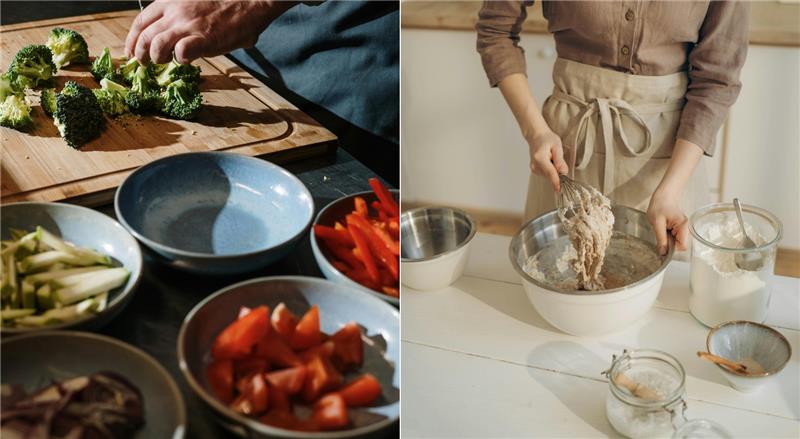
The profession of private chef is attracting more and more chefs in search of independence and meaning. True culinary entrepreneurs, chefs create made-to-measure dishes and provide a personalised service at their customer’s premises. Each meal becomes a unique experience, combining creativity, proximity and excellence. Many chefs choose this path to live their passion to the full, while developing a business on a human scale that reflects their personality. Being a private chef also means being a manager, a communicator, a demanding cook and a versatile entrepreneur committed to providing an unforgettable experience.
Training is an essential first step in acquiring solid skills. Among the options available, the Diplôme de Cuisine Le Cordon Bleu in Paris is the benchmark. This 6-to-12-month programme combines technical classes, demonstrations, market visits (Rungis) and continuous assessment, providing a comprehensive training programme. Designed for enthusiasts and aspiring chefs, it confers high-level gastronomic know-how, with a quality guarantee.
The Cuisine CAP is a reliable route for learning the basics: Cutting techniques, preparation and food safety. Ideal for retraining or for those who want to learn gradually. There are also online workshops and modules, useful for those who already have the basics and want to improve without committing to a long diploma.
Becoming a private chef requires not only culinary talent, but also human qualities. Discipline is essential if you are to comply with hygiene standards and meet deadlines. Creativity means you can offer tailor-made menus to suit your customers' tastes and requirements. Autonomy is essential: You alone manage all the services provided, from detailed planning to washing up.
A private chef is involved at every stage of the process. Firstly, they talk to the customer and draw up a personalised menu, taking into account dietary constraints, desired flavours, seasonality and budget. They then go shopping or order from suppliers.
On the big day, they transport all their professional equipment: Insulated containers, knives, chopping boards, mixers and small heating units. When they arrive at the customer's premises, they discreetly set up their work area, then prepare the dishes on site, take care of plating and in some cases serve at the table. One of the most important tasks is rigorous cleaning of the kitchen, to leave it spotless, as if nothing has changed.
It all starts with a market study to define your culinary concept, identify local demand and narrow your target. You then need to work on your image: Name, logo, communication media (website, social networks) and offer to test the services you want to provide on people around you to fine-tune your offer and obtain feedback.
To get off to a good start, begin by registering your enterprise, creating a strong visual identity and deploying your communication channels (website, social networks, specialist platforms). Test your offer with people you know and adjust your prices according to costs and feedback. Gather reviews right from the start: customer reviews are essential for building trust. Finally, build loyalty among your first customers with personalised offers, menu suggestions or regular themes.
With the right training, the right human qualities, a clear legal status and careful communication, being a private chef can quickly become a great entrepreneurial adventure. Commit yourself with passion, creativity and discipline, and you will see your business grow... dish by dish.
Copyright © 2026 Le Cordon Bleu International B.V. All Rights Reserved.